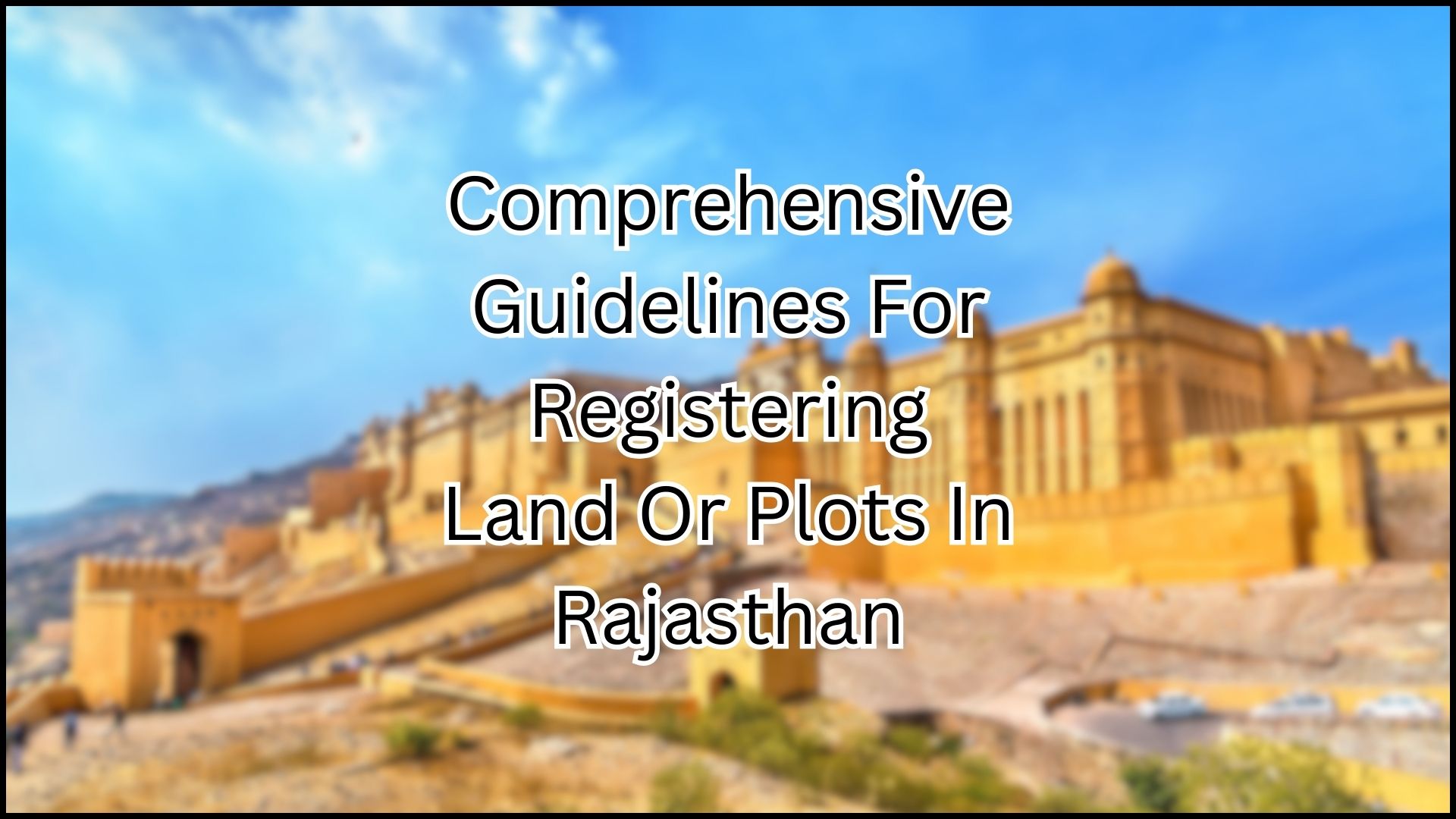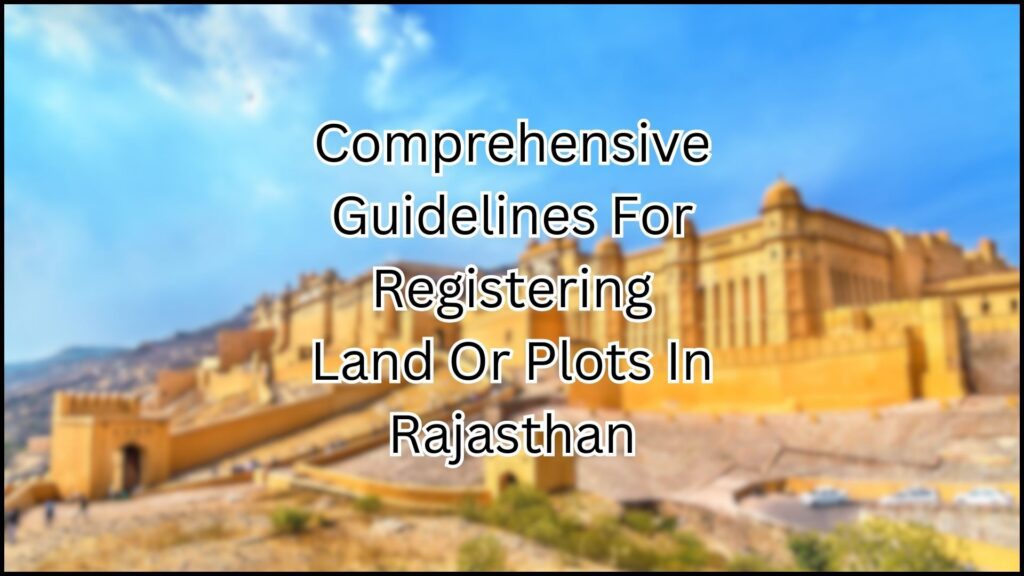
16 Feb Comprehensive Guidelines for Registering Land or Plots in Rajasthan

Registering land or plots is a vital step in protecting property investments and asserting ownership rights. In Rajasthan, this process entails acquiring a unique Rajasthan Land Registration ID, crucial for verifying property transactions’ authenticity and preventing fraud. This guide aims to elucidate the simple steps involved in registering land or plots in Rajasthan, ensuring legal protection of ownership rights. It covers obtaining a Land Registration ID, which adds an extra layer of security to property transactions in the state. The guide encompasses essential aspects such as required documents, registration fees, and the role of the Rajasthan Land Registry. By the end, readers will have a clear understanding of navigating property registration in Rajasthan and the significance of the Land Registration ID.
Understanding Land Registration:
Land registration is the official process of documenting ownership rights, interests, and details of land or real property with a government authority. It establishes a legal record that validates ownership, mitigates disputes, and enhances transparency in property transactions. This process ensures verifiable property ownership, thus preventing fraud and unauthorized claims. Land registration is crucial for property transactions like sales, purchases, mortgages, providing clarity and legal protection while facilitating urban planning, taxation, and resource management.
Documents Required for Land or Plot Registration:
Registering land or plots in Rajasthan necessitates specific documents to facilitate a smooth and legitimate registration process. Essential documents include:
- Sale Deed or Title Deed
- Proof of Identity
- Proof of Address
- Mutation Extract
- Land Tax Receipts
- Encumbrance Certificate
- NOC from Relevant Authorities
- Land Survey and Measurement Report
- Passport Size Photographs
- Rajasthan Land Registration ID
Step-by-Step Registration Process in Rajasthan:
The process of registering land or plots in Rajasthan follows a systematic approach to legally protect ownership rights. The steps include:
- Document Preparation: Gather all necessary documents, including the Sale Deed, identity proofs, address proofs, land tax receipts, and other certificates.
- Visit the Sub-Registrar’s Office: Visit the local Sub-Registrar’s Office (SRO) where the property is situated. Fill out the registration application form and submit the required documents.
- Application Processing: The Sub-Registrar verifies submitted documents and processes the application, requiring payment of registration fees and applicable taxes.
- Biometric Verification: Both buyer and seller must undergo biometric verification at the SRO to confirm their identities.
- Document Registration: The Sub-Registrar reviews documents, ensures compliance, and registers the property, stamping the Sale Deed with the official seal.
- Verification and Approval: Documents are sent to the tehsil office for verification and approval by the Tehsildar, who updates records.
- Land Registry ID Generation: The unique Rajasthan Land Registration ID is generated, linking the property to the online land registry for enhanced transparency and security.
- Online Land Registry Check: After registration, property authenticity and ownership details can be verified conveniently through the official Rajasthan portal.
Rajasthan Land Registration ID:
The Rajasthan Land Registration ID significantly bolsters security and authenticity in property transactions, serving as a digital footprint encapsulating crucial property and transaction information. Obtaining this ID is integral to the registration process, providing a central reference point for future property transactions and deterring fraudulent practices.
Preventing Fraud with the ID:
The Land Registration ID acts as a robust deterrent against fraudulent practices, enhancing security and reliability in property dealings for both buyers and sellers.
Fees for Land or Plot Registration in Rajasthan:
Registration involves various fees essential for ensuring legality and authenticity, including registration fees, stamp duty, mutation fees, encumbrance certificate fee, property tax, utility charges, legal and professional fees, and online service charges.
Conclusion:
Rajasthan’s land registry system, supported by advanced technology, offers a robust framework enhancing transparency, security, and authenticity in property transactions. Understanding the registration process and the significance of the Rajasthan Land Registration ID empowers individuals to make informed decisions and engage confidently in property transactions. Incorporating Rajasthan land registry details into property dealings secures ownership rights and investments in the vibrant state of Rajasthan.


No Comments